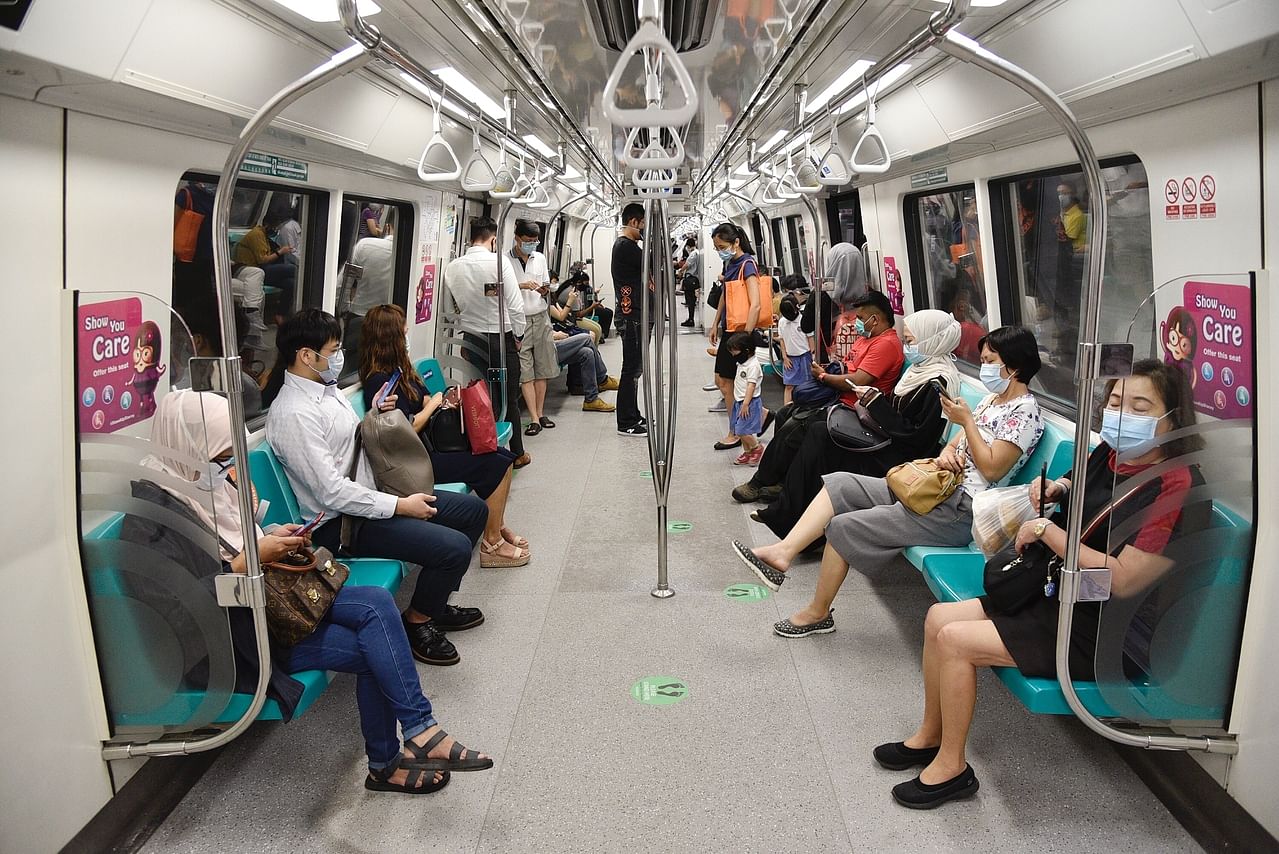Singapore's rail reliability continues to grow in first 3 months of the year
Sign up now: Get ST's newsletters delivered to your inbox

Trains clocked 1.401 million train-km overall between delays of more than five minutes.
ST PHOTO: DESMOND WEE
Wong Kai Yi
Follow topic:
SINGAPORE - Reliability of the nation's train network continued to improve in the first three months of 2020, with train-kilometres (train-km) between delays inching past the 1.4 million mark.
For the first three months of the year, trains clocked 1.401 million train-km overall between delays of more than five minutes, according to the latest 12-month moving average data set from the Land Transport Authority (LTA).
The figure, released on Friday (May 16), is up from the 1.32 million train-km reported for the whole of 2019.
In contrast, overall reliability for the whole of 2018 was less than half of current levels, at 690,000 train-km.
Across the five MRT lines, all registered growth in reliability apart from the North-South Line (NSL) - the oldest line - and the North-East Line (NEL).
The NSL clocked 1.1 million train-km between delays, down from 1.43 million train-km in 2019. On March 5, the line was plagued by a delay of around three hours that stranded commuters during the morning rush hour.
The fault began around 6am and train services resumed fully only at 9am, said operator SMRT at the time. The cause of the fault remains under investigation.
The NEL's reliability fell to 826,000 train-km from 1.38 million train-km in 2019.
On Feb 27, the line was hit by a six-hour delay that initial investigations revealed was caused by a broken contact wire that affected power supply to trains starting from Sengkang depot.
For the other train lines, the East-West Line (EWL) topped the reliability charts, showing significant improvement at 2.58 million train-km, up from 1.48 million in 2019.
The Circle Line jumped to 1.82 million train-km from 1.22 million, while the Downtown Line rose to 1.29 million train-km from 1.14 million last year.
There was just one major disruption - the NEL one - on the whole MRT network in the first quarter of the year. The Straits Times understands the NSL fault was not recorded as service was considered to be degraded and not completely disrupted.
The LRT network, meanwhile, clocked 161,000 car-km between delays of more than five minutes for the first three months of the year, up from 154,000 car-km in 2019.
The Sengkang-Punggol Line clocked 253,000 car-km, while the Bukit Panjang Line clocked 97,000 car-km between faults. Both figures were up slightly from the end of 2019.
The LRT saw three disruptions for the first quarter of 2020 - two on the Sengkang-Punggol Line and one on the Bukit Panjang Line.
In a Facebook post on Friday, Transport Minister Khaw Boon Wan said that keeping train service reliable remains the ministry's priority, even amid the Covid-19 outbreak.
He called the rising rail reliability comforting and thanked transport workers for their efforts in keeping the trains running.
Pointing out the NEL incident, he added that the line's reliability will recover.
"We are also focusing on making public transport safe for staff and commuters. Our operators will continue with enhanced cleaning. Workers should work from home, if they can. Those who need to travel must mask up, minimise talking and maintain good personal hygiene," he said.
"This way, we can get back to normalcy earlier."

